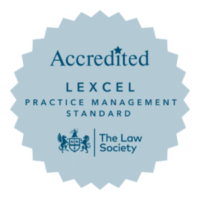Wills + Probate: Reading of the Will – Responsibility of the Executors
08th Oct 2024
What happens at the “Reading of the Will”?
I am sure we can all recollect a film or TV scene, depicting the family and loved ones of the deceased (the testator’s), formally gathered for the so called “Reading of the Will”. It may or may not surprise you to learn that, the so called “Reading of the Will”, rarely exists, as such.
Who discloses the contents of the Will?
Following the testator’s passing, the responsibility of disclosing the contents of the Will falls to the Executors of the Will. The Executors have the legal responsibility to administer the deceased’s affairs and distribute the deceased estate in accordance with the terms of the Will.
Strictly speaking, a Will is a private document until such time as “probate” to the Will has been granted by the Probate Registry. Once probate to the Will has issued, the Will is classed as a public document, and anyone can request a copy via the Probate Registry.
If a Will is stored by a professional organisation such as a Law Firm, bank, etc, typically, the organisation will require sight of the deceased’s death certificate, ID and authorisation from all named Executors before releasing the Will to the Executors.
When are the beneficiaries of a Will notified?
There is no set timescale, for the Executors in terms of disclosing the contents of the Will and notifying the beneficiaries.
Whilst individuals can request a copy of the Will, it is up to the Executors to decide whether or not to disclose a copy prior to Probate.
In certain circumstances, it might be appropriate for the Executors to wait until the Grant of Probate has issued. However, it is entirely possible that the Executors need to notify a beneficiary in the early stages of the estate administration.
In practical terms, certain individuals (often immediate family members) already know the contents of the Will and indeed, already have a copy, as this was provided to them by the testator during their lifetime.
Do I have to act as Executor if named in the Will?
The appointment of an Executor is not binding and there is no legal requirement for an induvial named in the Will to undertake the role.
If you have been named as an Executor under a Will and are unsure whether or not you should act, it would be advisable to seek independent legal advice as soon as possible.
If you carry out certain tasks on behalf of the estate by default, you may have already accepted your appointment as Executor. From a legal perspective, this is known as “intermeddling”. Broadly speaking, if there is an assumption that a task has been performed per the duties of an executor this could be classed as intermeddling.
Equally, if you are happy to act, it would be advisable to seek legal advice as to the contents of the Will and your immediate and future responsibilities as Executor. At all times, an Executor must act in the best interest of the estate and ultimately, the estate beneficiaries. In legal terms, this is often referred to as an Executor’s “fiduciary duties”.
If an Executor fails to carry out their “fiduciary duties” they could find themselves personally liable from both a legal and financial perspective.
How can Thatcher + Hallam LLP assist?
If you have lost a loved one and are wondering where to turn to for assistance, our dedicated Team are here to help. We will guide you through the process, with an empathetic and personal approach.
We offer a bespoke service to meet your specific circumstances. This can range from an initial free meeting to help point you in the right direction, to dealing with the estate administration process from start to finish, or somewhere in-between.
We also have an experienced team of expert lawyers that specialise in advising our clients on contested Will and inheritance claims.
Related news
Articles you may find useful
Like this article? Sign up for our regular newsletters






